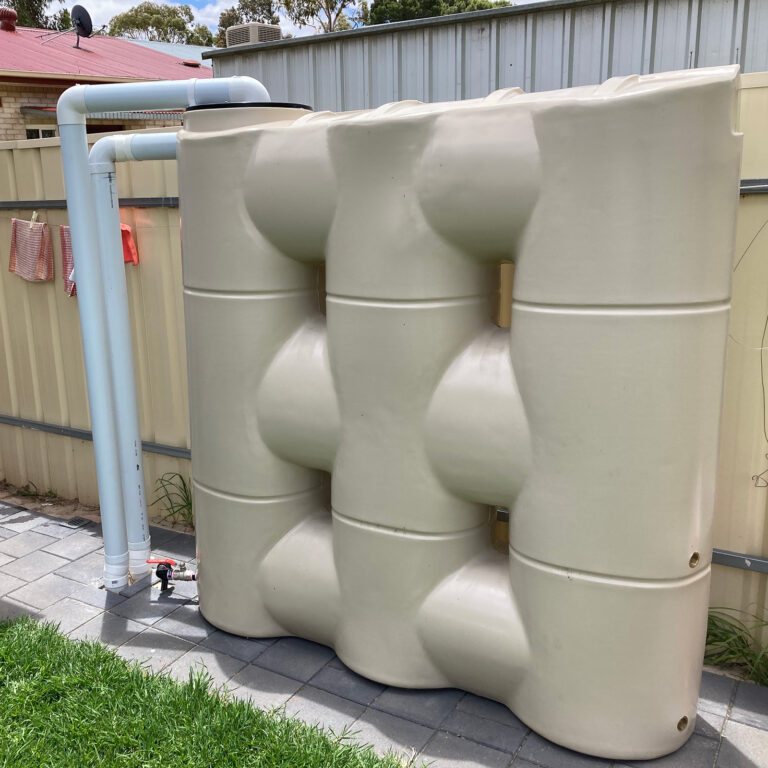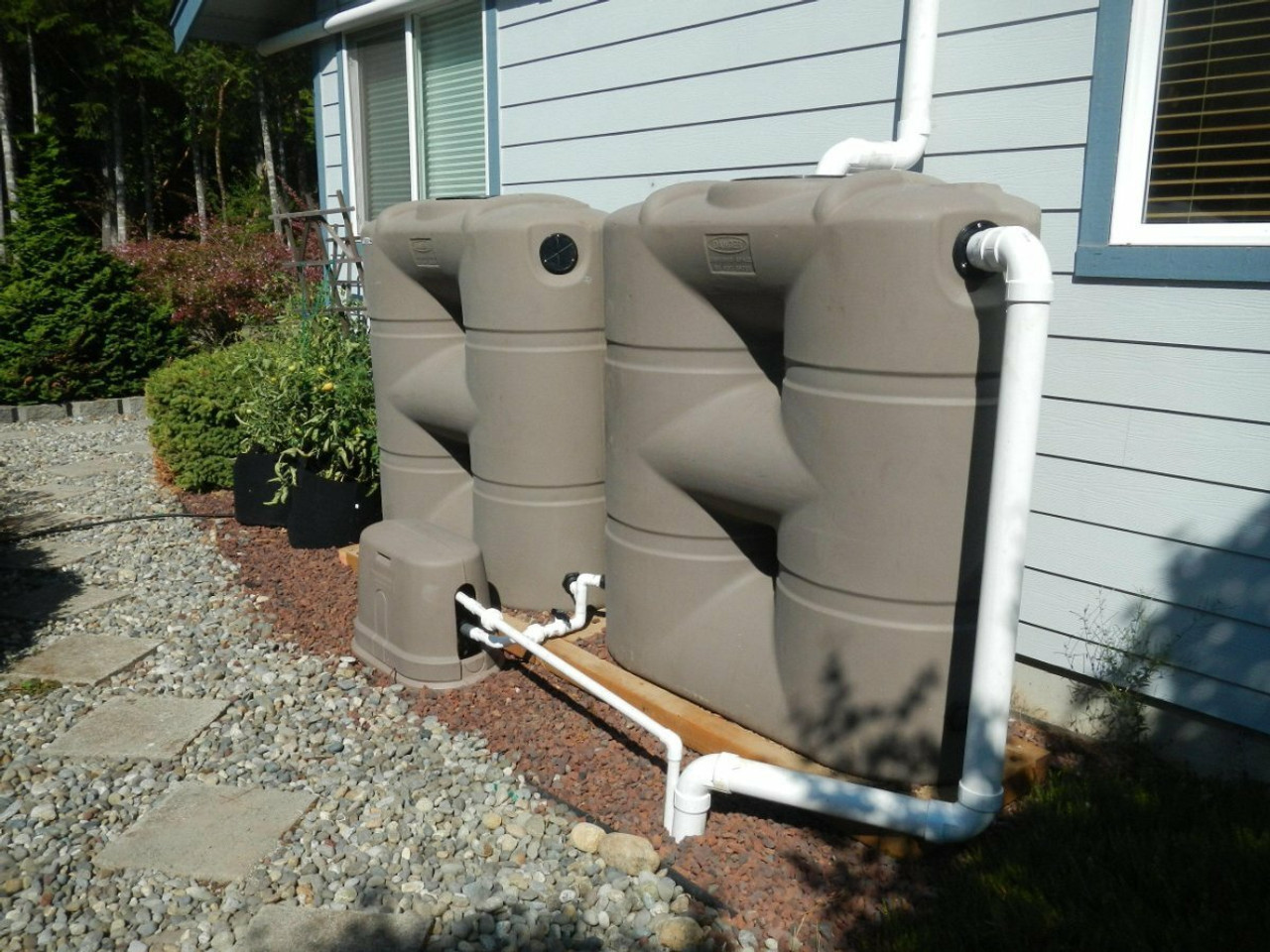Slimline Water Tanks: Space-Saving Solutions for Tiny Characteristics
Discovering the Different Usages of Rainwater Containers for Residential and Commercial Features
As the global focus on sustainable living methods proceeds to escalate, the usage of rainwater storage tanks in both household and commercial settings has actually arised as an important option. The complex uses of rainwater tanks present a compelling situation for their adoption, not just as a sensible water-saving step however additionally as a testimony to responsible resource management.
Benefits of Using Rainwater Tanks
Utilizing rainwater tanks provides many benefits for both houses and areas in terms of water preservation and sustainability. Among the essential benefits of making use of rain tanks is the significant decrease in reliance on keys water - Slimline water tanks. By capturing and storing rain for later use, people and neighborhoods can decrease their need for treated water, inevitably alleviating the concern on water therapy facilities and reducing power usage connected with water transport and therapy
Furthermore, rain harvesting with containers offers a reputable alternative water resource throughout times of water limitations or scarcities. This kept rain can be utilized for different non-potable objectives such as irrigation, purging toilets, and cleaning clothes, lowering the stress on typical water sources. Furthermore, making use of rain tanks can cause cost financial savings for both households and neighborhoods by lowering water expenses and decreasing the requirement for expensive facilities developments to meet growing water demands.
Essentially, the utilization of rainwater tanks provides a lasting and eco pleasant approach to water management, benefiting both private customers and the more comprehensive area in terms of water conservation, cost-efficiency, and durability.
Rain Container Use in Irrigation
Given the benefits of rainwater containers in preserving water sources and reducing reliance on mains supply of water, a substantial application lies in using kept rain for watering objectives - Slimline water tanks. Rainwater harvesting systems can efficiently accumulate and save rainwater, giving a sustainable water source for watering yards, grass, and farming areas. By utilizing rainwater for irrigation, homeowner can decrease their reliance on treated water sources, causing set you back savings and environmental advantages

One of the primary benefits of utilizing rain for watering is its purity. Rainwater is normally soft and complimentary from the chemicals and additives often located in mains water, making it suitable for nourishing plants without the danger of hazardous results. Additionally, rain is at ambient temperature level, which can profit plant growth by avoiding temperature shocks that can occur with cold keys water.
Rain Storage Tanks for Bathroom Flushing

Applying rainwater tanks for toilet flushing is an affordable and eco-friendly practice that can be conveniently incorporated into both household and business buildings. The stored rain can be used to purge bathrooms by attaching the storage tank to the existing plumbing system. This basic yet effective option can substantially decrease water usage in a building, especially in locations where water shortage is a problem.

Integrating Rainwater Storage Tanks in Landscape Design
These storage tanks can capture and save rainwater overflow from roofings, which can then be made use of for watering yards, yards, and plants. By making use of rainwater for irrigation functions, residential or commercial property proprietors can reduce their dependence on municipal water resources, leading to set you back savings and preservation of precious water sources.
Along with offering a lasting water source for landscape design demands, rainwater storage tanks can additionally help in taking care of stormwater runoff. By catching rain that would otherwise stream into storm drains pipes, these containers can reduce disintegration, lower flooding risks, and stop air pollution of natural water bodies. Integrating rain containers in landscaping check here can contribute to the total visual charm of the building, showcasing a commitment to environmental stewardship.
Industrial Applications of Rain Storage Tanks
Making use of rain storage tanks in industrial setups uses a lasting option for water administration and conservation, benefiting organizations and the atmosphere alike. One crucial business usage is for watering functions, where collected rainwater can be used to water landscaping, gardens, and agricultural areas surrounding commercial residential or commercial properties.
Additionally, rainwater tanks can be incorporated right into the fire suppression systems of commercial structures. By having a dedicated water source for firefighting this page purposes, companies can boost their fire precaution and possibly minimize insurance policy costs. Furthermore, rain accumulated in storage tanks can be treated and made use of for non-potable functions within business buildings, such as flushing bathrooms, cleaning, and cooling down systems. This not only conserves fresh water sources but additionally lowers operating expense for companies. Overall, the consolidation of rainwater containers in industrial settings presents a sensible and environmentally liable technique to water administration.
Final Thought
Finally, rain tanks provide many advantages for both residential and commercial homes. From irrigation to bathroom flushing and landscape design, the usage of rainwater storage tanks can assist save water sources and reduce water expenses. In addition, including rain containers in business settings can result in substantial price financial savings and environmental benefits. Generally, the convenience and sustainability of rainwater tanks make them a valuable financial investment for any kind of home owner looking to increase water efficiency.